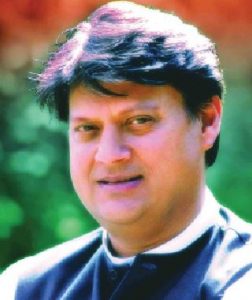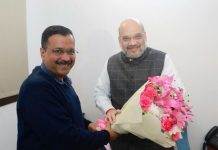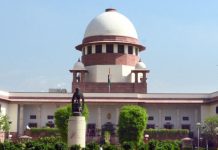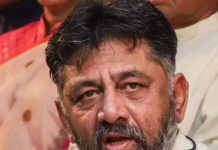 He was young and bright, and aspiring to be the prime minister of India. He could have made it. But the Maharaja of India politics, Madhavrao Scindia, is dead He passed away when he had just reached a high point in his career, within the Congress Party as well as on the national scene.
He was young and bright, and aspiring to be the prime minister of India. He could have made it. But the Maharaja of India politics, Madhavrao Scindia, is dead He passed away when he had just reached a high point in his career, within the Congress Party as well as on the national scene.
The Congress is a strange political party. When the Nehru-Gandhis lead it, no one can dare to think of a second-in-command. But Scindia, for some strange reason, was quietly and surely emerging as the second-in-command within the Congress. Two names from the party have recently been doing the rounds as a prime ministerial probable from the Congress in case party president Sonia Gandhi because of the controversy surrounding her foreign origin, decided to step aside. One of them was Scindia. The other was, of course, was Manmohan Singh.
Sonia Gandhi had already nominated Scindia as the deputy leader of the party’s parliamentary wing, virtually making him the number two in the party. It is a rare distinction for anyone to become the second-in-command within the Congress. Scindia with his charming manners managed to make it. Even Sonia Gandhi was won over by Scindia’s princely charms. It could be her calculation that, perhaps, he was the most harmless figure around. It was Scindia who most of the time spoke for Sonia in the Lok Sabha.
Scindia was literally Prince Charming of Indian politics: affable, ever smiling but an aristocrat to the hilt. He never enjoyed mixing with every one. Yet he never generated bad vibes simply because of his aristocratic manners. There was something disarming about him that he could at times rose above party lines, and manage to calm down Lok Sabha when the House was often plunged into pandemonium.
I remember vividly an episode during the monsoon session of Lok Sabha, which ended in August, was in a fit of rage over the UTI scam. Members were unwilling to listen even to Speaker GMC Balayogi. The Speaker turned to Scindia virtually pleading with him to calm his party members. Scindia stood up and began to speak: ‘Speaker Sir…’ He had barely finished his sentence, and the Congress members, along with opposition backbenchers, began to return to their seats. Finally, thanks only to Scindia; the Speaker could give
his ruling.
The scion of Scindias was no run-of-the-mill politician. He loved socialising and mixing with the apolitical elite. He enjoyed sharing jokes. He was madly in love with cricket. One of his intimate friends in Delhi was the Nawab of Pataudi, and his wife Sharmila Tagore. Besides politics, cricket was his other passion.
He not only watched cricket but also loved playing it. When he was the minister for Railways, I remember, he invited journalists to play a cricket match with the Railways team. He believed that he was a great cricketer, and that the journalists could be beaten. He walked in to bat, and very soon there was a loud appeal for LBW. Scindia too seemed to feel that he was clearly out. But the umpire turned down a very loud appeal from the journalists’ team. The umpire was the Nawab of Patudi, who clearly erred in favour of his friend Scindia. The Maharaj — as people reverentially addressed him — had a big laugh when everyone told him later that his friend Patudi obliged him so that the Railways team could put up a good show.
That was typical Scindia. He loved to put up a good show. He hated to go down under. He was a cool, and never lost his temper except when someone turned petty. It happened only once when Narasimha Rao turned nasty to Scindia. It was the peak of the “hawala” investigation. His name was there, and he had quit the Congress in protest. I went to see him at his Safdarjung Road residence. Minutes after we began discussing, Scindia lost his cool, and began to complain against Rao.
Indian politics has, for some time, been a cesspool of corruption, and with insignificant leaders dominating the national scene. Provincialism, and at times even a municipal mentality dominates the national scene.
In such a depressing scenario, the country needs young and modern minds to lead it with a vision. Scinida was one of those few young and modern politicians who had the promise of turning things around. After all, he had turned Indian Railways from the forever-late-running machinery to a profit-making ministry when he headed it in the 1980s.
The country will miss Scindia, a modern politician who could have contributed much more if he was around. He has departed from the national scene when his two other colleagues — almost of the same age group and similar bent of mind, Rajesh Pilot and Rangarajan Kumaramanglam —have already passed away. Scindia’s tragic death in these circumstances is a tragedy not for the Congress party alone, but for the country as well.
Good bye, Scinida. India will miss you, not so much as a Maharaja but as a modern politician with zeal to turn things around.
letters@tehelka.com













